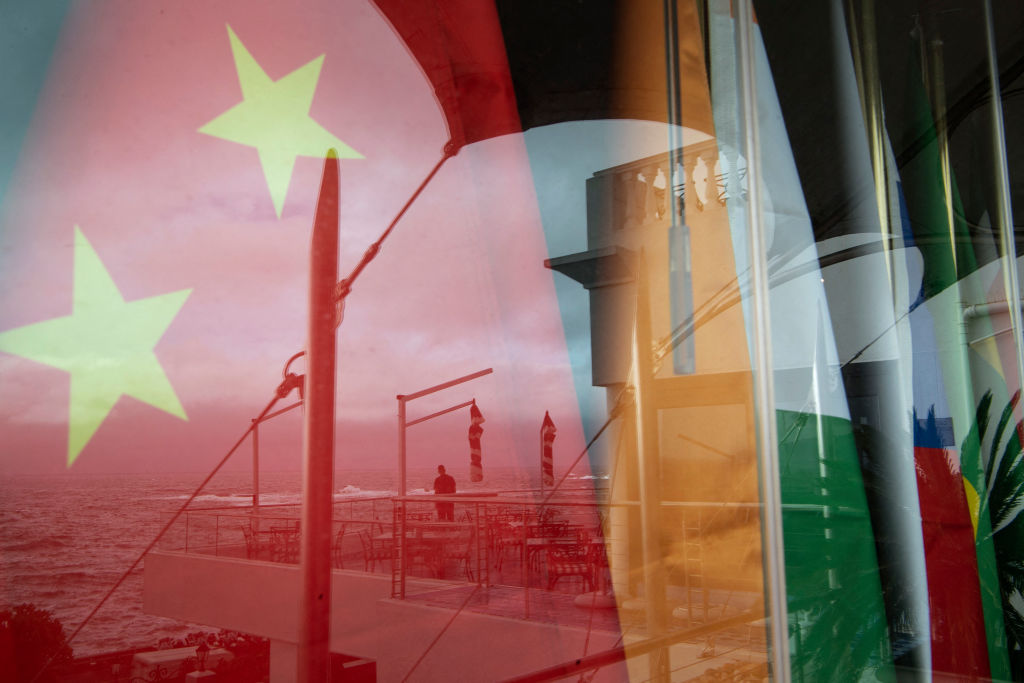
The announcement last week by the BRICS grouping (comprising Brazil, Russia, India, China and South Africa) that invitations had been extended to Argentina, Egypt, Ethiopia, Iran, Saudi Arabia and the United Arab Emirates made for interesting reading. The question is whether it will have any meaningful or lasting global impact.
The BRICS coalition was formed to coordinate and enhance economic policymaking across major developing countries. But it also exists to question and challenge the rationale for Western- (read: US-) dominated structural norms and economic systems. The BRICS members see the US-led international order as being antithetical to their interests and to favour Washington at a time when America’s position as the pre-eminent world power is increasingly being called into question.
The decision to include energy superpowers Saudi Arabia, the UAE and Iran among the grouping reflects recent trends in those countries. Riyadh and Abu Dhabi have been seeking to construct a more independent approach to their foreign policy interests, while Tehran welcomes any multilateral forum that holds the prospect of reducing its economic and political isolation. The Gulf states see greater potential for growth in their economic relations with the south, and China and India are two of their biggest oil customers. Saudi Arabia and the UAE also have the type of deep pockets that the BRICS’s New Development Bank will welcome, though they may not be prepared to reach into those pockets.
Of course, before we can call this the ‘twilight of the petrodollar’, as China’s Global Times proclaimed it in an opinion piece on the announcement, predicting that more local currency trade among the BRICS members and others in their regional trading blocs, a good dose of caution is warranted. De-dollarisation is difficult to achieve. Both the UAE and Saudi Arabia still have their currencies pegged to the US dollar and rely on Washington as their security guarantor—a position not easily replicated by any other BRICS member. Russia’s military performance in Ukraine will have given a number of countries pause for thought about whether the US’s military guarantees need revisiting.
The ability of BRICS to usher in a new, multipolar financial and trading world is also limited by its diverse membership. Some members have unresolved political differences that may well curb their governments’ willingness to cooperate. Chinese and Indian troops have clashed in the past few years along the two counties’ common border, and tensions and proxy conflicts between Iran and Saudi Arabia and the UAE have only recently reduced. The UAE’s Three Islands dispute continues to bubble away in the background. A jumble of monarchies, democracies, autocracies and a theocracy is not the ideal blend to ensure a united approach to usurping a global system that has, by and large, worked reasonably well for decades.
There are three lessons that non-liberal democracies have likely taken away from Western countries’ support for Ukraine in its war with Russia. The first is that collective political action, while difficult to achieve, can empower weaker states to try to best stronger ones. Second, fossil fuels still matter. And last, while Western sanctions can hurt a large economy, as long as there are alternative market players available, the economy will survive.
The expansion of BRICS will likely have been informed in part by these lessons, yet it remains to be seen whether this move is the first blossoming of a truly multipolar economic world or whether it will turn out to be more symbolic than functional.

